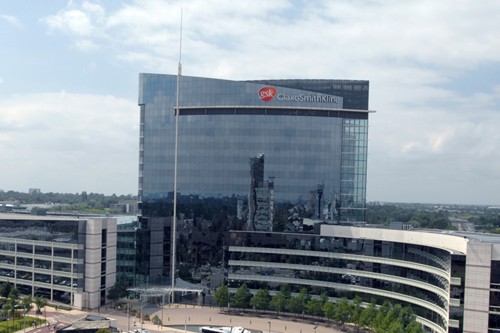
GlaxoSmithKline has exercised its option to license Ionis’ antisense medicines for chronic hepatitis B virus (CHB) infection, boosting its presence in virology.
While hepatitis C now has an effective set of treatments which can cure virtually all patients, hepatitis B remains difficult to treat, and can lead to cirrhosis, liver failure and liver cancer.
Current treatments for patients with CHB provide low levels of hepatitis B virus S antigen seroclearance, leaving many patients without a treatment to achieve sustained disease remission.
GSK missed out entirely on the hep C market, despite its longstanding presence in virology and HIV, watching its rival Gilead profit hugely from its market leading franchise, led by Sovaldi and Harvoni.
The UK-listed firm wants a shot at the CHB market, where there are far more patients requiring treatment – an estimated 200 million people worldwide are living with CHB compared to around 70 million with hep C.
Following positive phase 2 results, GSK is exercising an existing option on two of Ionis’ antisense treatments for the disease, known as GSK3228836 and GSK3389404. It is taking on all rights and responsibility for development, regulatory and commercialisation activities and costs.
As a part of the licensing deal, Ionis will receive fees and milestone payments up to $262m including a $25m licence fee. It is also eligible to receive tiered royalties in the low double digits on net sales.
“By targeting the root cause of CHB-related liver disease, our antisense technology can potentially deliver a transformative medicine for people who suffer from chronic hepatitis B virus infection,” said Brett Monia, chief operating officer at Ionis. “We believe GSK’s development and commercialisation expertise in infectious diseases makes them the ideal partner to help address this high unmet need.”
GSK already has presence in the field with a hepatitis B vaccine, Ambirix, but any company which can develop an effective cure for those already infected would have a blockbuster on their hands.
Gilead is once again setting the pace, and already has a ‘hepatitis B cure research programme’ underway. This is led by GS-9688, a toll like receptor (TLR-8) agonist currently in phase 2, with a PD-L1 therapy in phase 1, GS-4224.
Meanwhile, the GSK deal is another feather in the cap for Ionis, which is growing strongly thanks to spinal muscular atrophy treatment Spinraza (licensed to Biogen) and Tegsedi, the treatment of polyneuropathy in adults with hereditary transthyretin amyloidosis which Ionis launched itself last year. It is also expanding its partnerships, including ongoing development deals with Biogen in rare genetic diseases and with AZ in NASH.




